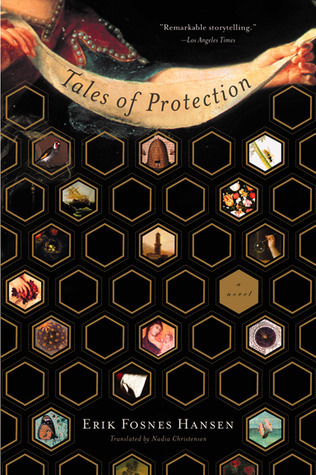
Fugitive Pieces
Book Description
In a world torn apart by loss and memory, a young boy survives the unimaginable horrors of war, carrying fragments of his past like a haunting melody. As he searches for solace, he navigates the complexities of love and identity against a backdrop of haunting landscapes and the echoes of history. Relationships entwine and unravel, forcing him to confront what it means to be both a witness to tragedy and a seeker of beauty. Each page pulses with urgency and longing. How do we rebuild ourselves from the pieces of a shattered world?
Quick Book Summary
"Fugitive Pieces" by Anne Michaels is a lyrical novel that traces the devastating aftermath of the Holocaust through the intertwined lives of two main characters, Jakob Beer and Ben. Jakob, a Polish Jewish boy, escapes the Nazis and is rescued by Athos, a Greek geologist. Raised in Greece and later Canada, Jakob grapples with survivor's guilt, memory, and the shadow of his lost family. His journey reflects the difficulty of processing trauma, but also highlights the healing power of love, language, and connection. The narrative shifts in the latter part to Ben, a Canadian of Holocaust survivor parents, who finds meaning and solace in Jakob’s writings. Through evocative prose, the novel explores how individuals attempt to reconstruct identity and rebuild their lives from the remnants of loss and tragedy.
Summary of Key Ideas
Table of Contents
The Enduring Impact of Trauma and Memory
The novel follows Jakob Beer, a young Jewish boy from Poland, whose family is murdered during the Holocaust. Alone and traumatized, Jakob survives by hiding in the forest until he is discovered by Athos Roussos, a Greek geologist. Athos rescues him, smuggling Jakob to the island of Zakynthos, where Jakob experiences a fragile sanctuary. The early sections dwell on Jakob’s childhood horrors, emphasizing how trauma etches itself onto memory, shaping Jakob’s perception of the world and leaving him perpetually haunted by loss.
Search for Identity and Belonging
Athos becomes a surrogate father and mentor, nurturing Jakob’s curiosity and intellect. Their life in Greece and eventual move to Canada brings moments of stability and affection, yet Jakob remains tethered to the past, wrestling with guilt as a survivor. Through Athos, Jakob is introduced to the natural sciences and the solace found in the physical world. Their shared passion for geology and history parallels Jakob's own attempt to piece together fragments of his shattered identity, mirroring the archeological work Athos pursues.
Healing Power of Love and Art
Jakob’s adulthood is marked by attempts to move forward while honoring those lost. His relationships, particularly with his wives Alexandra and Michaela, are colored by his inability to escape his memories. Love is depicted as both redemptive and complicated; Michaela, in particular, embodies an understanding that allows Jakob to explore vulnerability and healing. Despite his attempts to adapt, Jakob is acutely aware of the divide between the world of the living and those who remain only in memory.
Transmission of History Across Generations
The narrative transitions to Ben, a Canadian child of Holocaust survivors, who becomes obsessed with Jakob’s poetry and story. Ben, too, struggles with inherited trauma, feeling the ache of a history he did not directly experience. Through reading Jakob's works and uncovering his legacy, Ben begins to understand his own heritage and the indelible impact of collective memory. The connection between Jakob and Ben underscores how trauma and remembrance can transcend generations, forging bonds across time and experience.
Landscape and the Physical World as Witness
Throughout the novel, physical landscapes—from the forests of Poland to the rocky Greek island and the snowy expanses of Canada—act as silent witnesses to personal and historical suffering. Michaels’ language is rich and poetic, emphasizing the beauty and brutality of the world. The novel ultimately engages with how memory can be both a source of pain and a catalyst for empathy and transformation. Through love, art, and the persistence of memory, characters strive to reclaim their shattered selves and create meaning from fugitive pieces of their fractured lives.
Download This Summary
Get a free PDF of this summary instantly — no email required.





